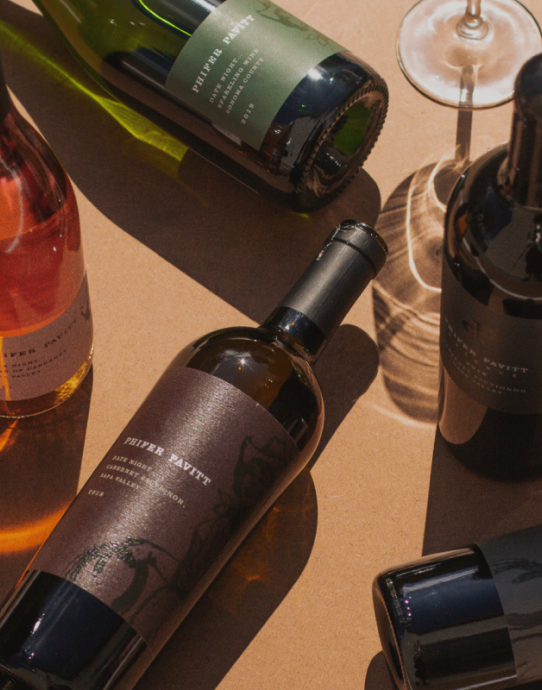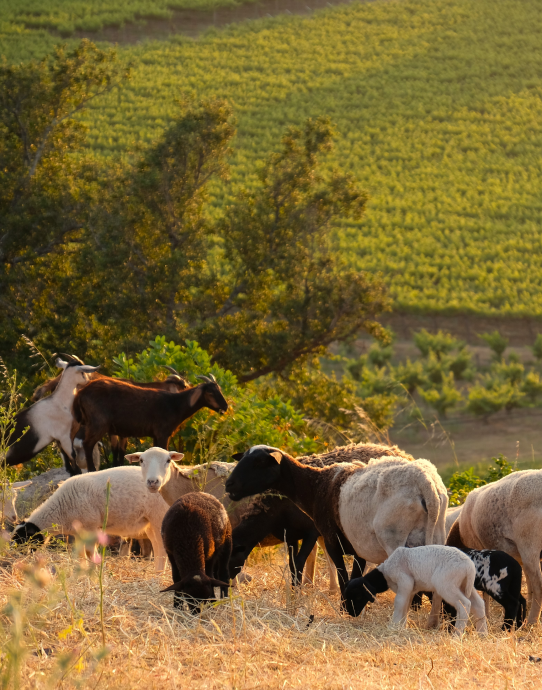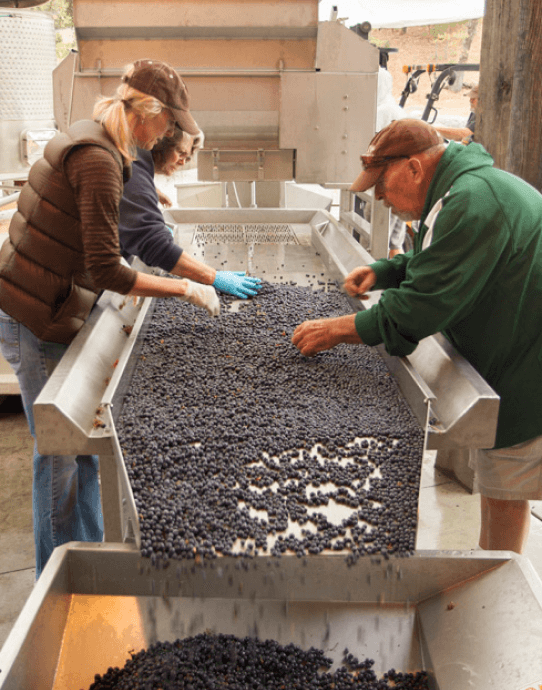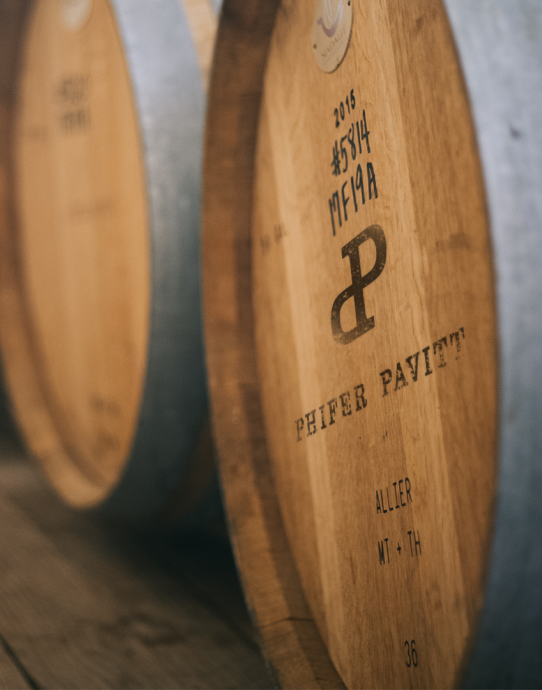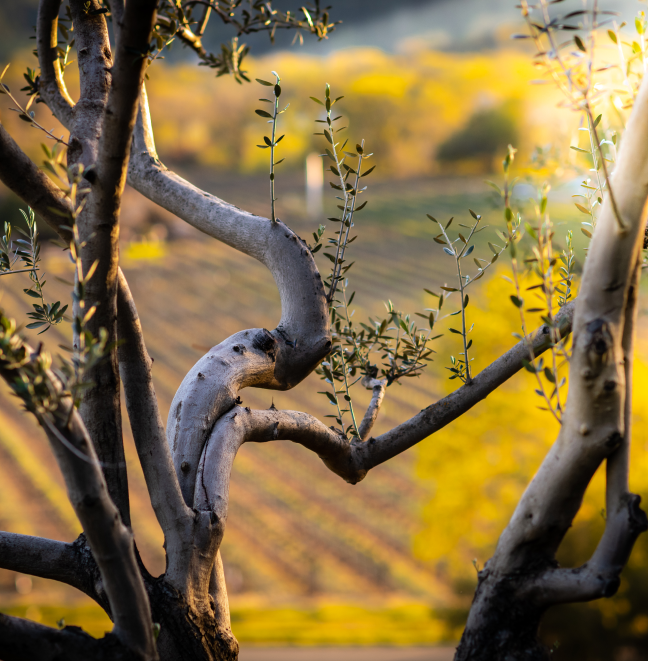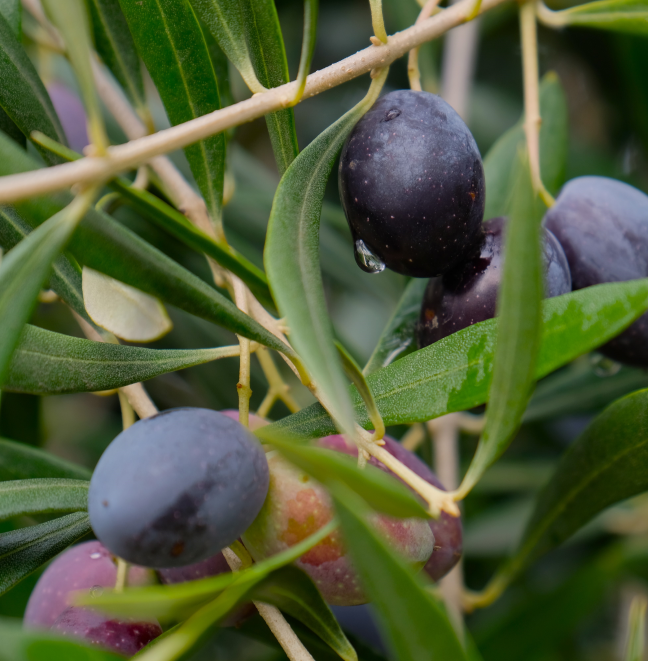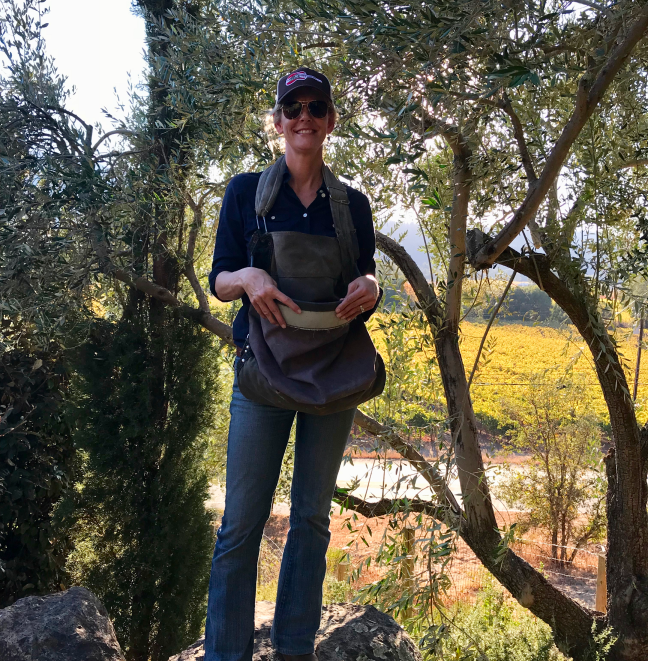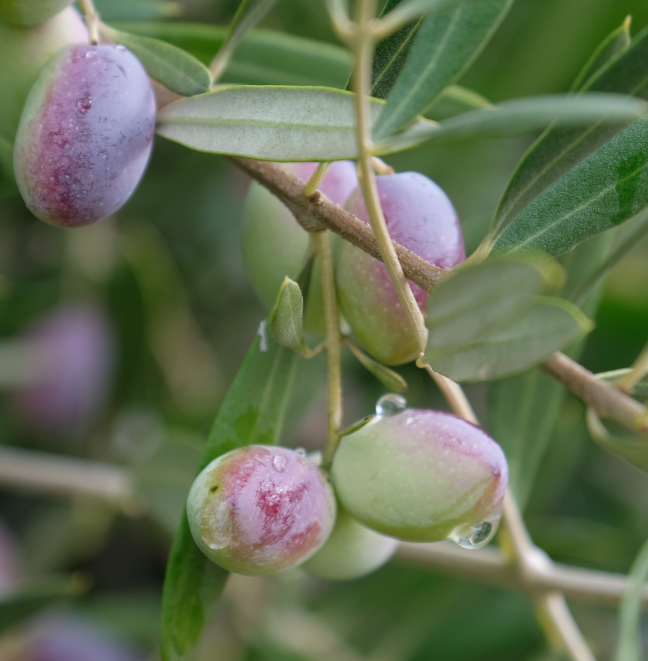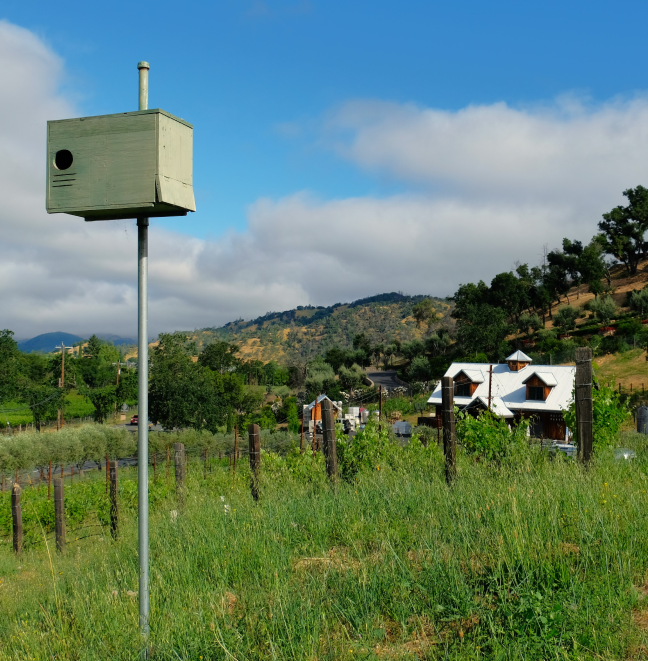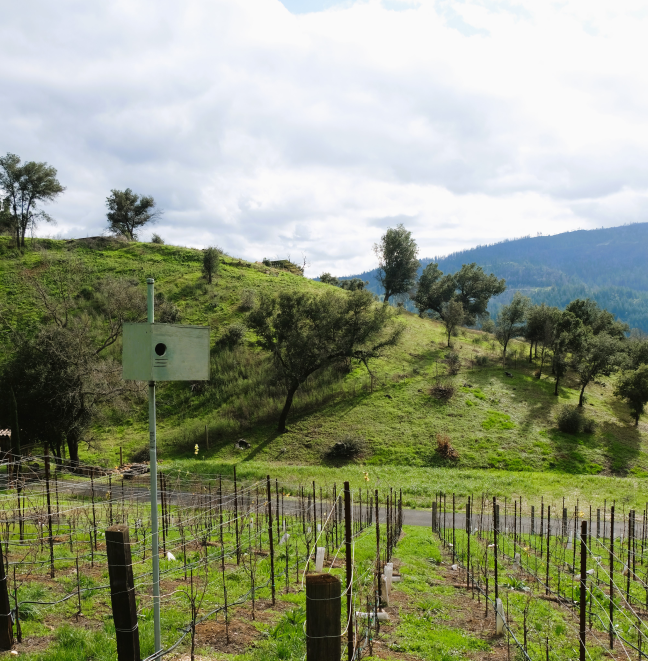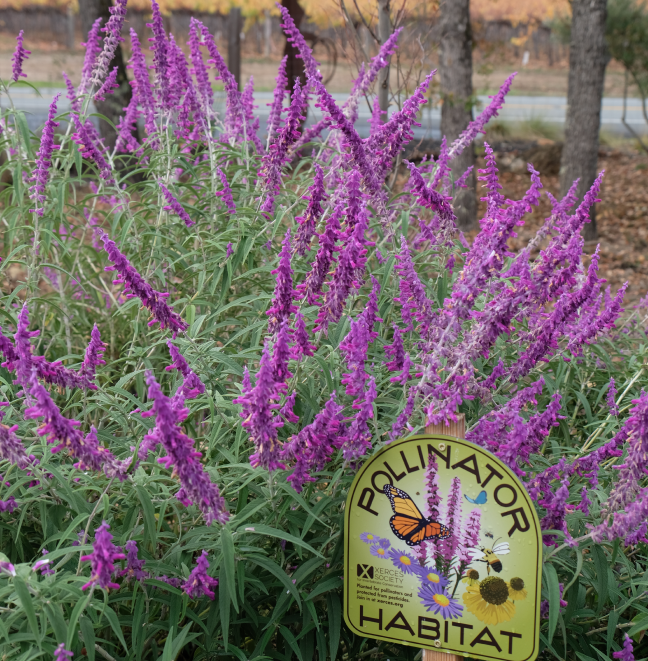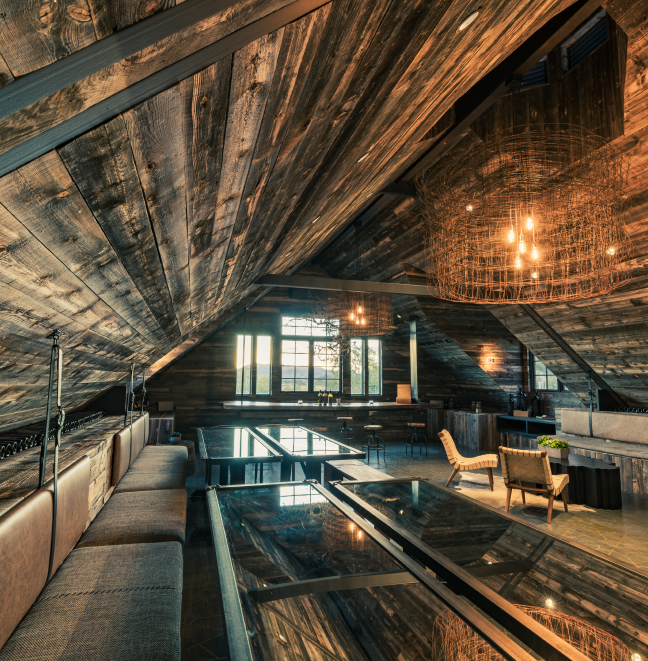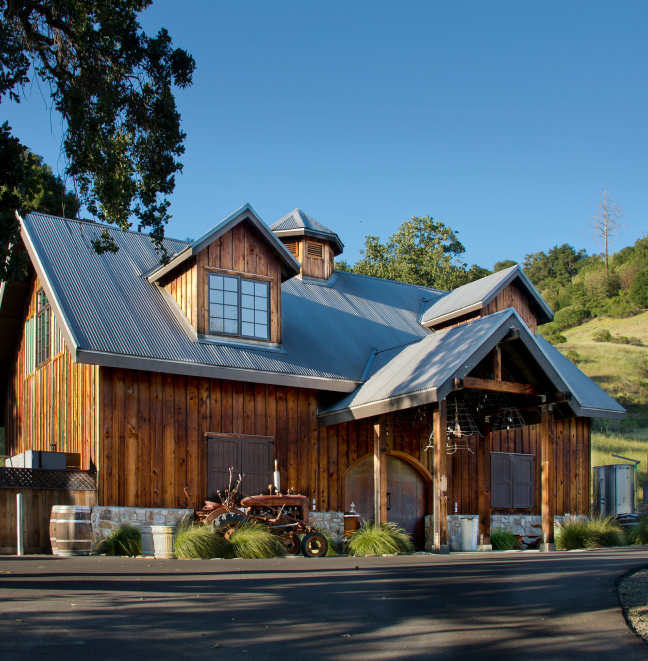
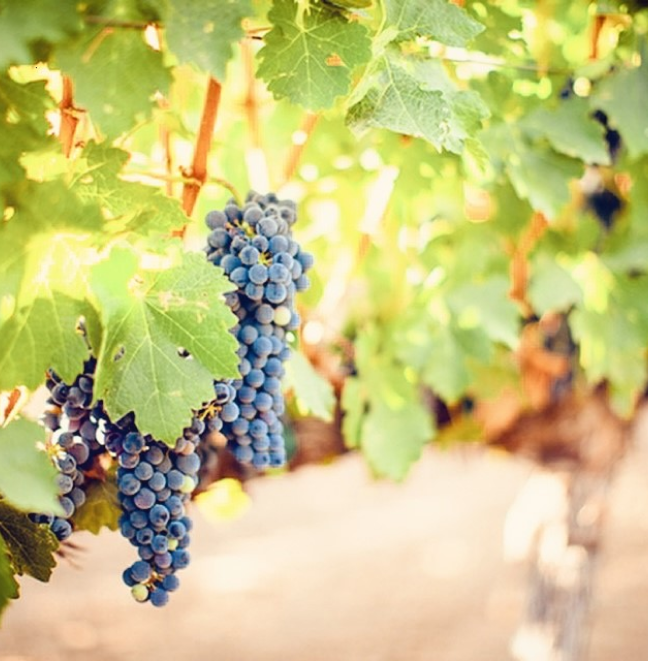
Cabernet Sauvignon
Here at the Phifer Pavitt Estate, our mission is to let the terroir speak through the grapes we grow.
The vines dictate and tell us exactly what they need. With a sustainable farming approach, our inputs are minimal and are always driven by mother nature and each growing season, allowing us to cater to the vines and give them exactly what they are need of at the perfect time. For us, sustainable farming practices mean creating a legacy here in Napa Valley and leaving the land a better place than when we found it. With the inclusion of compost to enhance the soils, pollinator cover crops to create more biodiversity in the environment and precision viticulture, our goal is to grow the highest quality grapes for our unique site.

Olive Trees
Olive trees are highly beneficial for the environment and sustainability, particularly in regions like Napa Valley, for several reasons.
Olive trees are well-suited to the Mediterranean climate of California, which is characterized by dry summers and wet winters. They are drought-resistant and require significantly less water compared to many other crops. This makes them an ideal choice for sustainable agriculture in water-scarce areas. Olive trees have deep root systems that help prevent soil erosion. Their roots stabilize the soil and improve its structure, which can reduce the risk of landslides and promote better water infiltration. Additionally, the leaves and prunings from olive trees can be composted to enhance soil organic matter and fertility. Olive trees absorb carbon dioxide from the atmosphere and store it as biomass, contributing to the reduction of greenhouse gases. This carbon sequestration helps mitigate climate change by lowering the overall carbon footprint of agricultural practices. These beautiful trees have a long productive lifespan, often producing fruit for hundreds of years. This long-term productivity means that once established, olive groves can continue to provide economic and environmental benefits for many generations without the need for frequent replanting.


Agroforestry
Implementing agroforestry at Phifer Pavitt was a crucial component of our sustainability goals. By integrating trees near our vineyards, we help create a diverse/productive landscape that supports a wide range of flora and fauna.
By promoting biodiversity, agroforestry helps maintain ecosystem balance, resilience and stability. Trees contribute to soil health by enhancing soil fertility, structure and organic matter. Tree roots help prevent soil erosion, improve water infiltration and reduce nutrient leaching, resulting in higher, more productive soils for viticulture.
Suzanne even takes the trees used for Christmas decorations in our town of Calistoga and plants them at Phifer Pavitt so they can continue to benefit the environment.
The use of Agroforestry offers a holistic approach to sustainable land use and helps to support the structure of our everyday environment.

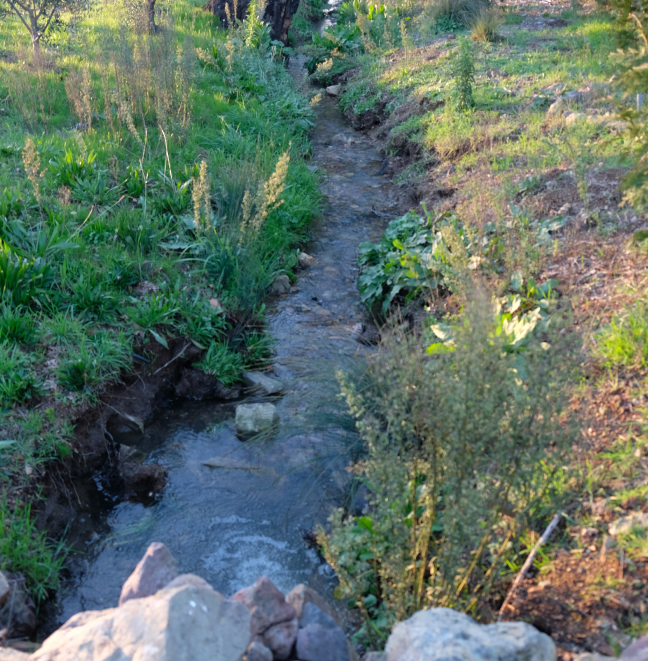
Water Conservation
Being in California means conserving water is always at the forefront of our minds. As farmers, it is our duty to use ‘liquid gold’ sparingly so all farmers can continue to produce crops and raise livestock.
At Phifer Pavitt, we use water efficiently so we can maintain productivity of our ecosystem without depleting water resources or cause environmental damage. Conserving water helps ensure our vineyards receive necessary moisture they need to not only thrive, but produce the highest quality fruit possible. In addition, by using a drip irrigation system and monitoring soil moisture, we help the soil become more resilient to drought conditions. We take great pride in reducing water use in hopes of lessening the draining of rivers, lakes and aquifers. Save water and drink wine!

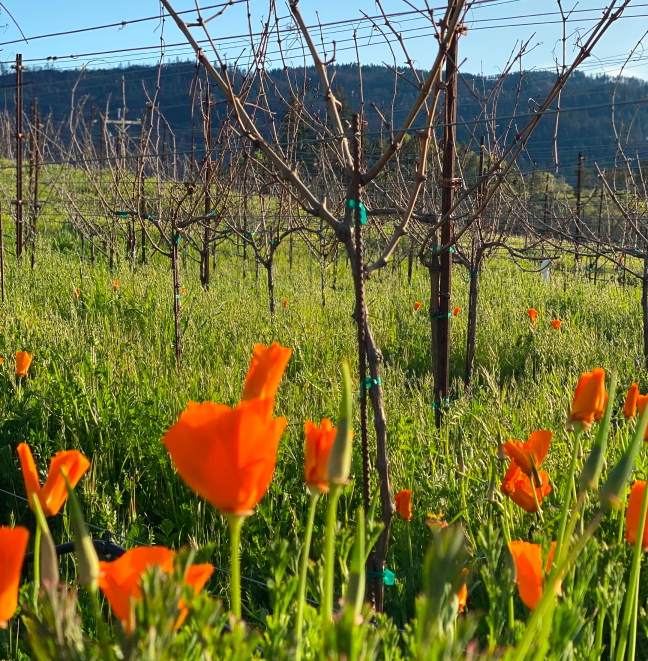
Cover Crop Management
Cover crop management is important even for a limited producer like Phifer Pavitt. Cover crops protect our soil from erosion, maintains soil structure and lasting fertility.
Crops such as mustard, legumes and grasses, increase organic matter content which improves soil health and enhances its ability to maintain moisture. Having healthy soil is essential for supporting all plant growth, including vineyards, and promoting ecosystem resilience. Having cover crops also helps with soil nutrient management, weed suppression, pest management carbon sequestration, water management and biodiversity enhancements. Our goal is to nurture this “green manure” to enhance ecosystem resilience and contribute to a healthier planet.

Owl Boxes
Owl boxes are artificial structures designed to provide nesting sites for owls. These ‘homes’ offer several environmental benefits. Owls are a natural pest control as they hunt rodents such as mice, rats, and voles.
By providing nesting sites for owls at Phifer Pavitt, we are encouraging these birds of prey to establish territories which helps control rodent population without the need for chemical pesticides. Overall, owl boxes play a valuable role in promoting ecological balance, supporting natural pest control, enhancing biodiversity, and fostering stewardship of the environment. By providing these nesting sites, these boxes contribute to the health and vitality of the ecosystem and help create a more sustainable/resilient landscape for generations. Over the years we have seen many owls make these boxes their home and we look forward to seeing them come to life every year.

Butterfly Garden
Butterfly gardens play a crucial role in supporting biodiversity and promoting ecological balance. Located at the front of the property, our garden provides essential habitat and food sources for butterflies, bees, and other pollinators.
This simple, but mighty, garden contributes to overall biodiversity by supporting a wide variety of plant species, which, in turn, provide food and habitat for various birds and other wildlife. A diverse ecosystem is more resilient to environment changes and better able to adapt to disturbances which further proves that even little changes make great impact.
By planting our butterfly garden, Phifer Pavitt has contributed to the health and vitality of the ecosystem, promoting biodiversity conservation, and enhancing the quality of the environment for both wildlife and people. Butterflies represent a tangible way for our guests and communities to make a positive impact on the environment and support sustainable living, one flutter at a time.

Eco barn
Our winery and tasting room are truly unique and further demonstrate our commitment to sustainability with nearly every furnishing and fixture repurposed.
The iconic barn hails from the 19th century and was originally located in nearby Franz Valley. It was moved piece-by-piece, re-milled, and finally reassembled on our estate in 2005. The interior of the upstairs tasting room is fashioned from reclaimed split-rail snow fencing from Wyoming, while the insulation is 100% post-consumable recycled blue-jeans.
The interior light fixtures were designed by Suzanne and assembled by Shane using hay-bailing and hog-wire that were found on the property. Benches have been created using recycled landscape wood from our neighbor Solage Resort, as well as wood beams reclaimed from the original post office in Shane’s hometown of Manhattan Beach. Additional tables were also reclaimed from the post office, as well as side tables designed from used wine barrels. Completing the interior is our tasting bar: a 100-year old, 2,000 lb slab of fallen black walnut, suspended from the ceiling and accompanied by a live oak branch from the property dating over ten years, yet still flourishing with live liken.


